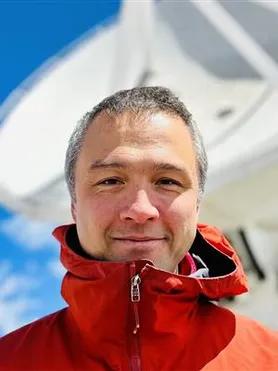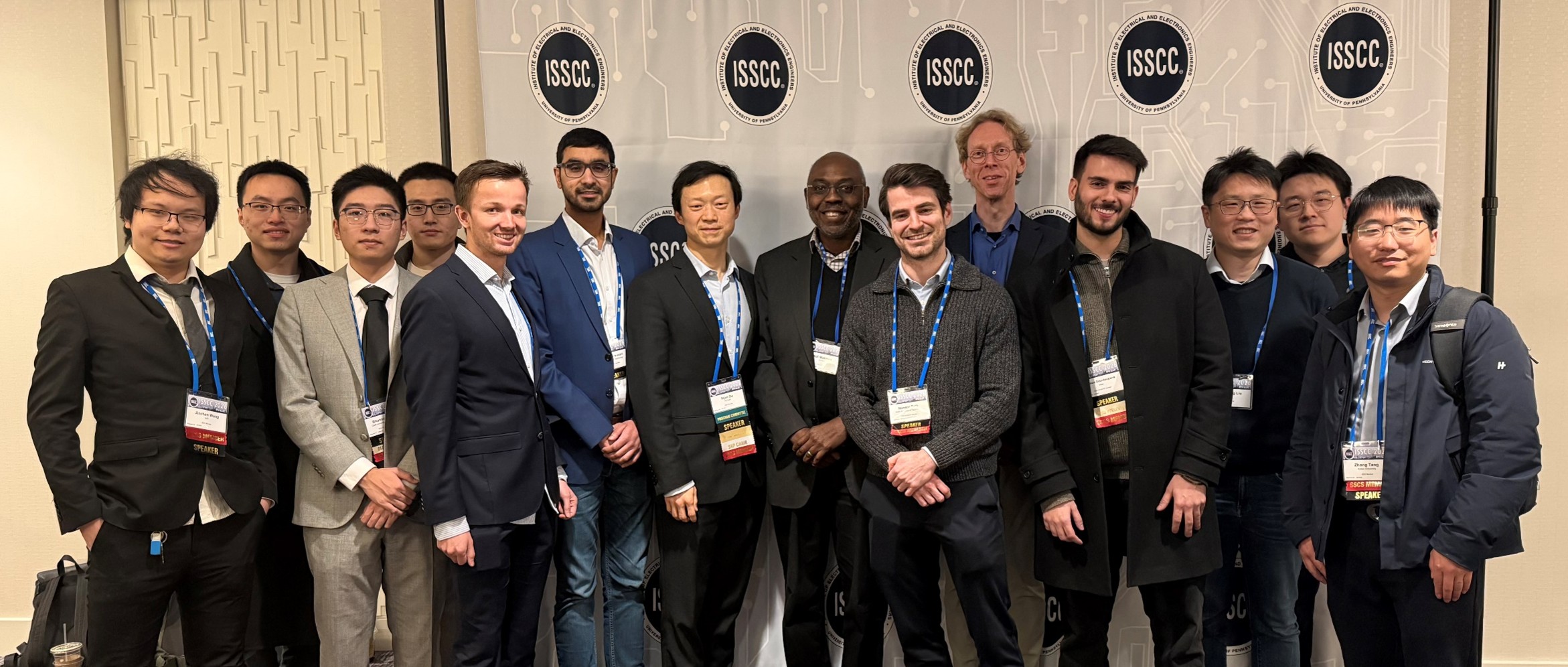News
NWO Vici grant for Akira Endo
- Friday, 27 February 2026
Time-traveling to galaxies of the past: creating a 3D map of the early Universe
When you look up at the sky at night, at the endless amounts of stars and constellations, you might begin to wonder about the origins of the Universe. And that is exactly what experimental astronomer Akira Endo, and his team, are trying to uncover. They are creating a 3D map of the early Universe, for which they’re developing a chip with tiny terahertz spectrometers, which are very small analytical instruments that measure the properties of far-infrared light. Akira is a researcher at the Terahertz Sensing Group, and he has received a Vici grant from the Dutch Research Council (NWO) for this study.
Discovering the young cosmic web
In the early Universe, the large-scale distribution of dark matter and galaxies was assembling into the cosmic web. Galaxies grew and merged, while stars formed vigorously. To learn more about the distant, dust-enshrouded galaxies in the early Universe, astronomers study infrared light that has traveled for billions of years before reaching Earth. Rather than relying solely on individually visible galaxies, astronomers can also study the faint glow emitted by many young galaxies. This widespread glow carries a hidden imprint of how matter was arranged in the early Universe. These studies show how fast galaxies are moving away from us and therefore how far away, and how old they are. But star formation and galaxy evolution in the early Universe have been observed only in small cosmic volumes. Akira Endo and team will reveal the cosmic large-scale structure and the cosmic star formation history with new observational techniques.

Record presence for the department at ISSCC 2026
- Friday, 27 February 2026
At this year’s International Solid-State Circuits Conference (ISSCC) - the world’s leading conference on chip design (the Chip Olympics), TU Delft presented a record 14 papers and 1 forum talk, out of a total of 39 accepted EU papers.
Topics range from analog techniques, RF circuits, and biomedical systems to energy harvesting, cryogenic CMOS, and AI for analog design.
From ultra-efficient wireless systems and biomedical innovations to cryogenic electronics for quantum applications and AI-assisted analog design, this strong presence highlights the depth and diversity of TU Delft’s Integrated Circuits research community.

Professor Kofi Makinwa appointed member of the KHMW
- Tuesday, 24 February 2026
The KHMW: committed to strengthening the connection between science and society
The KHMW was founded in 1752 and is the oldest “Learned Society” in the Netherlands. Since its inception, it has been committed to strengthening the connection between science and society by awarding prizes for scientific achievements, and by organizing public lectures, debates, and symposia. The KHMW consists of both leading scientists as well as socially engaged individuals interested in science.
Designing chips is like building with Lego
“My mission is to design sensors based on chips,” shares Kofi Makinwa enthusiastically. “It’s like building with Lego. Chip technology provides a set of standard bricks, which can then be combined in an incredible amount of different ways.” Kofi designs tiny silicon sensors that can interact with the outside world with incredible precision. They can sense light, temperature, and magnetic fields, to name just a few of the possibilities. Sensors are everywhere, explains Kofi, “there are probably more than 20 different sensors in your smartphone,” and most of them are made from silicon “Lego.”
Kofi is enthusiastic about his KHMW membership. “I’m looking forward to engaging with people from different backgrounds with a wealth of knowledge and expertise. Such people can clearly explain the importance of their own fields, why they are relevant and exciting, and so I expect that we will learn a lot from each other.”
